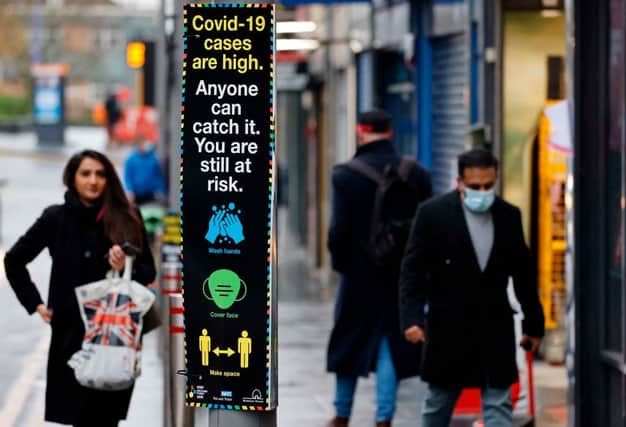Covid cases are rising fastest outside south and east England - the worst affected areas


The biggest rises in Covid-19 case rates are now occurring outside the South and East of England, the latest figures show.
Week-on-week increases are now much smaller in southern and eastern parts, despite the highest rates continuing to be recorded in these areas.
Where are case rates rising?
Advertisement
Advertisement
The Liverpool City Region and parts of the West Midlands have seen particularly sharp rises in coronavirus cases.
The rate in Knowsley on Merseyside has soared from 455.4 cases per 100,000 people to 1,263.4 per 100,000 in the seven days to 6 January. This marks the biggest week-on-week rise for any local authority area in England.
Halton in Cheshire, which is also part of the Liverpool City Region, saw the second biggest jump, rising from 533.2 to 1,220.2 per 100,000 in the same period.
This is followed by Liverpool itself, which has the third largest increase from 387.5 to 958.6.
Advertisement
Advertisement
All six authorities in the Liverpool City Region are currently in the top 10 local areas in England with the highest week-on-week rise in rates.
Parts of the West Midland are also seeing a notable increase in rates, particularly in Wolverhampton, Sandwell and Walsall.
In Wolverhampton, rates have climbed from 638.3 to 1,033.6, in Sandwell rates are up from 567.5 to 953.0, and in Walsall rates have risen from 497.1 to 815.5.
Week-on-week increases
The figures show how the rapid increase in rates seen in London and much of the south east and eastern England at the end of December has now spread to other parts of the country.
Advertisement
Advertisement
While the highest rates in England continue to be recorded in the South and East, the week-on-week increases in these areas are much smaller than in other parts of the country.
In some areas of Essex the rates have even fallen slightly, including in Thurrock which is down from 1,413.3 to 1,340.5, Castle Point, down from 1,291.3 to 1,254.8, and Epping Forest, down from 1,340.3 to 1,214.2.
As well as the Liverpool City Region and parts of the West Midlands, other areas in north-west England are now recording large jumps, including Pendle and Burnley in Lancashire, and Carlisle and Copeland in Cumbria.
There have also been large jumps in rates for Corby in the East Midlands, which is up from 473.6 to 945.7, the Isle of Wight is up from 601.7 to 1,120.1, and Bournemouth, Christchurch and Poole are up from 450.0 to 804.9.
All regions of England continue to record a week-on-week increase in rates, although there are signs in the South and East that the rise is slowing.